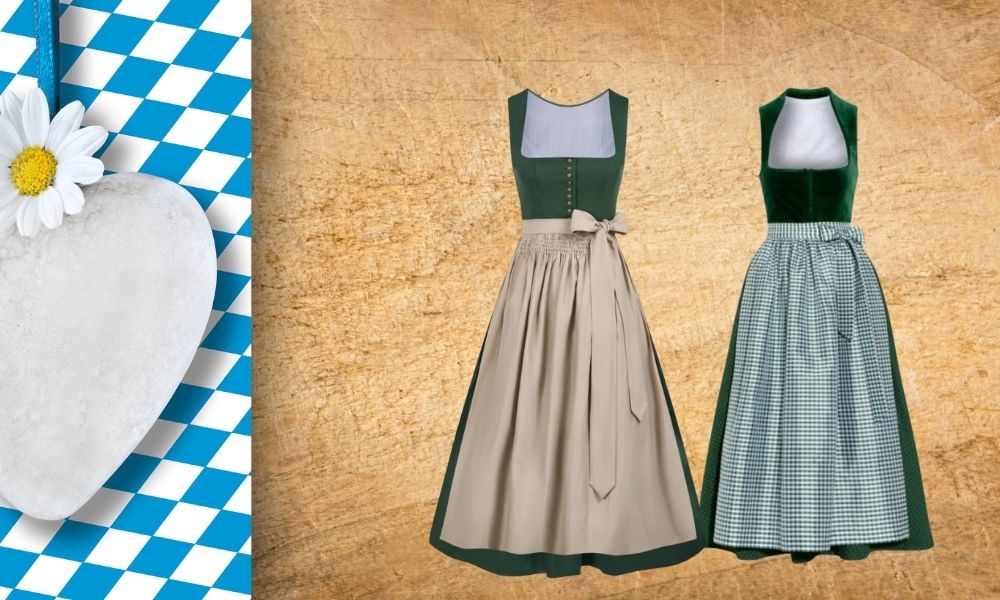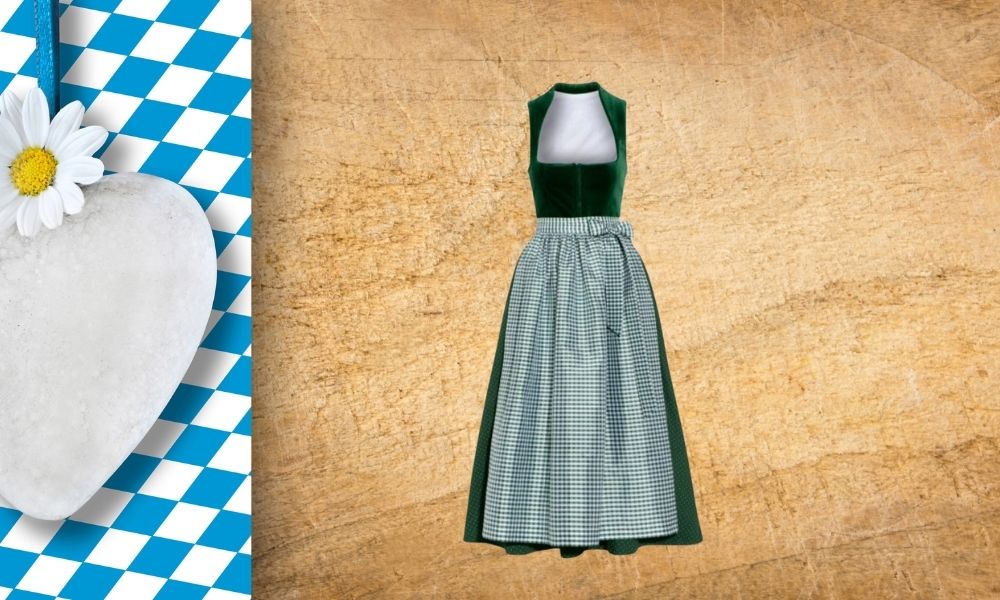dirndl green

Picture a lush Alpine meadow, dotted with wildflowers and framed by towering evergreens. Now, imagine capturing that vibrant, natural beauty in a single color. That’s the essence of dirndl – a hue that’s both timeless and trendy, rooted in tradition yet effortlessly modern. 🌿
But what exactly is dirndl green, and why has it suddenly become the talk of the fashion world? This captivating shade, named after the traditional Bavarian dress, has been turning heads on runways and in street style alike. From its rich history to its versatile applications in both fashion and home decor, dirndl green is proving to be more than just a passing fad. It’s a color that tells a story, one that connects us to nature, culture, and self-expression.
Ready to dive into the world of dirndl? Join us as we explore the depths of this enchanting hue, from understanding its origins to styling tips that will make you stand out. We’ll journey through its place in fashion history, help you choose the perfect shade for your skin tone, and even show you how to incorporate this verdant beauty into your home. Get ready to see green in a whole new light! 💚
Understanding Dirndl

Definition and origin of dirndl
Dirndl , a vibrant and earthy hue, originates from the traditional Bavarian dress known as the dirndl. This colour is deeply rooted in Alpine folklore and typically ranges from a rich forest green to a softer sage tone. The name “dirndl green” comes from its prevalence in these traditional dresses, which have been a staple of Bavarian culture for centuries.
Cultural significance in traditional Bavarian attire
Dirndl green plays a crucial role in Bavarian traditional attire, symbolizing nature, fertility, and the lush Alpine landscape. Its significance extends beyond mere aesthetics:
- Regional identity: Wearing dirndl represents a strong connection to Bavarian heritage
- Seasonal variations: Different shades of green are often associated with specific seasons or festivals
- Social status: Historically, the shade and quality of green fabric could indicate a wearer’s social standing
| Shade of Green | Cultural Significance |
|---|---|
| Forest Green | Connection to nature |
| Sage Green | Wisdom and tradition |
| Emerald Green | Prosperity and wealth |
Psychological effects of the color
The psychological impact of dirndl is notable, evoking various emotions and associations:
- Calmness and tranquility
- Connection to nature and the environment
- Growth, renewal, and vitality
- Balance and harmony
These effects contribute to the enduring popularity of dirndl in both traditional and modern contexts, making it a versatile choice for fashion and design. As we explore further, we’ll see how this rich color has influenced fashion trends beyond its traditional roots.
Styling with Dirndl Green
Incorporating dirndl green into modern outfits
Dirndl green, a vibrant and versatile hue, can effortlessly blend into contemporary wardrobes. Here are some ways to incorporate this traditional color into your modern outfits:
- Pair a dirndl blouse with high-waisted jeans for a casual chic look
- Opt for a dirndl blazer over a neutral dress for a pop of color
- Choose dirndl accessories to accent a monochromatic outfit
Complementary colors and patterns
To create stunning ensembles with dirndl green, consider these complementary colors and patterns:
| Complementary Color | Suggested Pairing |
|---|---|
| Deep burgundy | Elegant evening look |
| Crisp white | Fresh summer outfit |
| Rich brown | Autumnal ensemble |
Patterns that work well with dirndl include:
- Floral prints
- Plaid
- Polka dots
Accessories that pair well with dirndl green
Enhance your dirndl outfit with these accessories:
- Gold jewelry for a touch of elegance
- Brown leather belts and bags for a rustic feel
- White lace accents for a traditional nod
Seasonal considerations for wearing dirndl green
Dirndl green can be adapted for year-round wear:
- Spring: Light fabrics in dirndl paired with pastel accessories
- Summer: Breezy dirndl dresses or shorts with straw hats
- Fall: Dirndl green sweaters layered with earth-toned scarves
- Winter: Deep dirndl coats paired with cream-colored knits
Now that we’ve explored styling options for dirndl , let’s delve into its rich history in fashion.
Dirndl in Fashion History

Evolution of the color in traditional dirndls
The evolution of dirndl in traditional German dresses is a fascinating journey through Alpine fashion history. Initially, dirndls were crafted from locally available materials, with colors reflecting the natural surroundings. Green, reminiscent of the lush Alpine meadows, became a popular choice.
| Era | Dirndl Green Characteristics |
|---|---|
| 19th Century | Muted, earthy tones |
| Early 20th Century | Brighter, more vibrant shades |
| Mid-20th Century | Standardization of “dirndl green” |
| Modern Era | Diverse range of green hues |
Over time, the shade of green evolved:
- Early dirndls featured subdued, natural greens
- As dyeing techniques improved, brighter greens emerged
- Post-WWII, a specific “dirndl green” became widely recognized
- Today, a spectrum of green shades is embraced in dirndl design
Influence on contemporary fashion trends
Dirndl green has transcended its traditional roots to influence modern fashion. This distinctive hue has inspired designers worldwide, appearing in:
- High-end runway collections
- Casual streetwear
- Accessories and footwear
- Sustainable fashion lines
The color’s versatility and cultural significance have made it a recurring favorite in seasonal trends, particularly during autumn months.
Notable designers and collections featuring dirndl
Several renowned designers have incorporated dirndl into their collections, paying homage to its rich heritage while reinterpreting it for contemporary audiences.
- Karl Lagerfeld’s 2013 Chanel collection featured dirndl-inspired pieces in various green shades
- Dolce & Gabbana’s 2015 Alpine-themed runway showcased modern takes on dirndl green
- Vivienne Westwood often includes dirndl green in her eco-friendly collections
These designers have helped elevate dirndl green from a traditional costume color to a sophisticated choice in high fashion. As we explore further, we’ll see how to choose the perfect shade of dirndl green to complement your personal style.
Choosing the Right Shade of Dirndl

Undertones and variations of dirndl
Dirndl green comes in a variety of shades, each with its own unique undertones. Here’s a breakdown of the most common variations:
| Shade | Undertone | Description |
|---|---|---|
| Moss Green | Yellow | Earthy and natural |
| Forest Green | Blue | Deep and rich |
| Sage Green | Gray | Soft and muted |
| Emerald Green | Blue | Vibrant and jewel-toned |
| Olive Green | Brown | Warm and sophisticated |
When selecting a dirndl green, consider the overall look you want to achieve and which undertone complements your personal style.
Matching dirndl green to different skin tones
Choosing the right shade of dirndl green can enhance your natural complexion. Here’s a guide to help you find the perfect match:
- Fair skin: Opt for lighter shades like sage or moss green
- Medium skin: Forest green and emerald tones work well
- Olive skin: Olive green creates a harmonious look
- Dark skin: Deep forest green or vibrant emerald shades stand out beautifully
Remember, these are general guidelines. Don’t be afraid to experiment with different shades to find what makes you feel most confident.
Fabric considerations for dirndl green garments
The fabric of your dirndl can greatly affect how the green color appears and wears. Consider these factors:
- Texture: Fabrics with more texture, like brocade or embroidered cotton, can add depth to the green color
- Sheen: Silk or satin fabrics can make the green appear more vibrant and lustrous
- Weight: Heavier fabrics like wool or velvet can create a richer, more saturated green
- Durability: Choose fabrics that maintain their color after washing, such as high-quality cotton or wool blends
Now that you know how to choose the perfect shade of dirndl green, let’s explore how this versatile color can be incorporated into your home decor for a touch of Alpine charm.
Beyond Fashion: Dirndl Green in Home Decor
Using dirndl in interior design
Dirndl green, a vibrant and earthy hue, can breathe life into any living space. This versatile color works well in various interior design styles, from traditional to modern. Here are some ways to incorporate dirndl green into your home:
- Accent walls
- Upholstery
- Curtains or drapes
- Throw pillows and blankets
- Area rugs
- Artwork and decorative accessories
| Room | Dirndl Green Application |
|---|---|
| Living Room | Accent chair or throw pillows |
| Kitchen | Backsplash tiles or cabinet color |
| Bedroom | Bedding or wall paint |
| Bathroom | Towels or shower curtain |
Balancing dirndl with other colors in a space
To create a harmonious interior, it’s essential to balance dirndl with complementary colors. Consider these color combinations:
- Dirndl and warm neutrals (beige, cream, or tan)
- Dirndl and wood tones
- Dirndl and soft pinks or corals
- Dirndl and deep blues or purples
Remember to use the 60-30-10 rule: 60% dominant color, 30% secondary color, and 10% accent color.
DIY projects featuring dirndl
Bring dirndl into your home with these easy DIY projects:
- Paint old furniture pieces
- Create a gallery wall with dirndl green frames
- Craft dirndl green throw pillow covers
- Make a macramé plant hanger using dirndl green cord
- Upcycle glass jars with dirndl green paint for vases or storage
Now that we’ve explored dirndl green in home decor, let’s consider how this versatile color can inspire other aspects of design and lifestyle.

Dirndl, with its rich heritage and versatile nature, has proven to be more than just a color associated with traditional Bavarian attire. From its roots in fashion history to its modern applications in home decor, this vibrant hue offers a myriad of possibilities for those looking to infuse their style with a touch of timeless charm.
Whether you’re incorporating dirndl green into your wardrobe or using it to add a pop of colour to your living space, remember that the key lies in finding the right shade and pairing it thoughtfully. Embrace the cultural significance and aesthetic appeal of dirndl green, and let it inspire you to create looks and spaces that are both traditional and contemporary.
